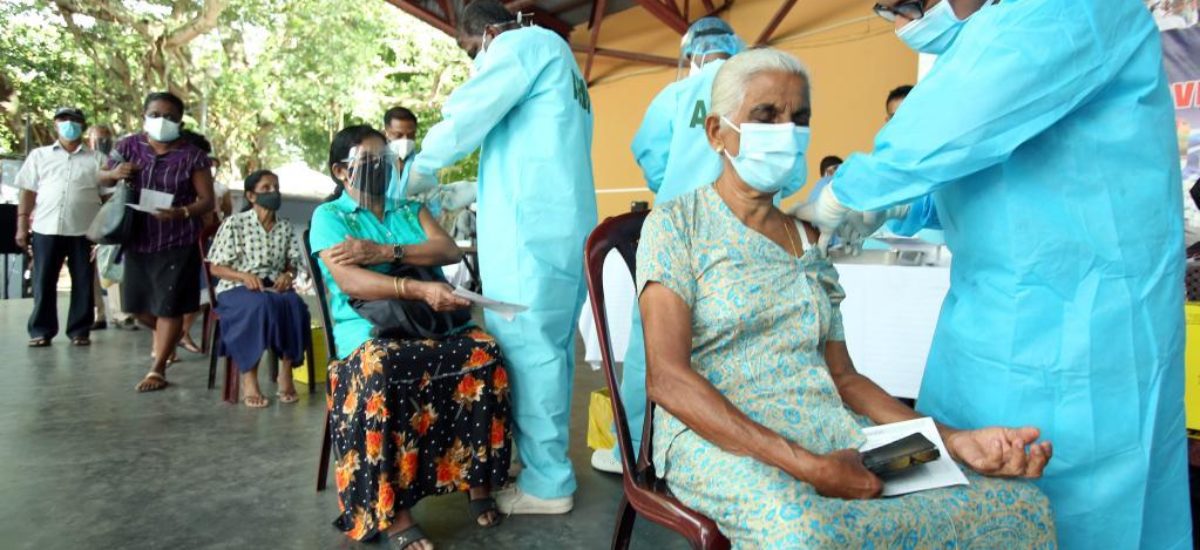Photo courtesy of xinhuanet.com
We are in the third year of the pandemic and the end is indefinite. What we know in terms of methods to overcome this pandemic has remained the same since mid-last year. This means our path is clear although challenging.
“Variants are a wild card. We still do not know everything about this virus, we still do not know everything about variants and the future trajectory of that. But what we do know is what works: vaccines work, vaccines prevent people from needing hospitalizations and prevent people from dying,” Maria Van Kerkhove, the Technical Lead for COVID-19 at the World Health Organization (WHO) stress the importance of a layered approach where vaccinating is combined with physical distancing, masking, and avoiding crowds are used as part of the strategy to minimize spread and avoid outbreaks of COVID-19.
The definition of what it means to be fully vaccinated is also shifting and it is natural for it to shift in the face of new variants. The most recent guidance in Sri Lanka has made three doses to be the definition of fully vaccinated. Why? Mainly because the efficacy (ability to provide adequate protection against the virus) of vaccines can reduce overtime. Especially with novel variants such as Omicron, it is vital to improve your chances of not being hospitalized or becoming severely ill by getting a third dose. There is also intentional effort from the public health sector to get vaccines to people with government directives such as implementing a vaccine mandate and providing mobile vaccine clinics.
However, it is understandable to have fear and anxieties. Questions such as “Can I just get sick and get over it?” or “Why should I vaccinate my child with such a rapidly developed vaccine?” are natural. As a community Sri Lanka has done better than most countries in adhering to vaccine uptake. However, it is difficult to ignore the noise and fear spread through social media groups or in everyday conversations.
In these instances, it is helpful to create a checklist for yourself and your community. Questions you can ask yourself are:
- Will this minimize the risk of me being severely ill?
- Has the safety of this vaccine been tested?
- Were these vaccines given to others in different countries/communities with effective results?
- Will getting sick and recovering provide me with the same type of protection?
A basic checklist can help you structure the unknown and recognize the root of the challenges that you are facing. To answer the checklist above, the answers to the first three questions are a resounding “yes” and the answer to the fourth is a strong “no.” To provide more context, the first two questions have been answered by many experts and over time as we have now administered vaccines to millions without significant safety issues. Short but comprehensive guidance have been provided by the WHO on vaccines – where both Pfizer and Moderna vaccines are deemed safe for those of 12 years and above. It might help you to know that many countries including high income countries are vaccinating children to increase their safety and to allow them to have a normal social life with reduced safety risks.
Communities pushing back against vaccines and other public health guidance are seen everywhere and are most visible in high income countries such as the US. The US, with perhaps the most visible and widespread anti-vaccine and anti-public health measures, has the highest death rate compared to countries with similar resources, painting a bleak picture.
The fourth question in the checklist to consider getting infected by COVID-19 to “get it over with” comes with many challenges. First, the impact of COVID-19 including the Omicron variant has varied. Although you might expect it to be mild, it can put you in the hospital for days and leave you with fatigue for months. Therefore, expecting Omicron variant to be mild is not safe for you or your loved ones. Second, as the pandemic goes on, the long term negative impact of getting infected known as “long Covid” continues to challenge the health systems and communities. So you might be inviting more trouble than you bargained for and have long term complications by intentionally getting sick or avoiding vaccines. Third, the protection you get via vaccinations often have data that can provide us with information of the duration of optimal protection and the time to get a booster. Getting infected and recovering, although does provide protection, the duration and level of immune response can vary and is relatively less understood.
Our goal as a community is to keep each other safe. One important approach is to vaccinate (all doses) and mask up despite understandable frustrations that we are facing as this pandemic drags on. Another very important measure is to keep each other safe from fears and anxieties about COVID-19. Getting your news from official Sri Lankan government sources or signing up for WhatsApp alerts from WHO itself, avoiding experts that provide wildly alternative ‘too good to be true’ solutions can be simple ways to help us all.
The pandemic will come to an end. And our role in ending this pandemic by vaccinating and minimizing spread is crucial for it to happen.


